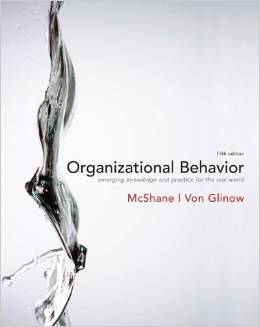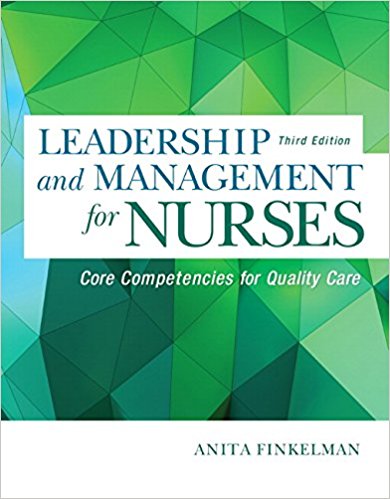Organizational Behavior And Management 11th Edition By Konopaske – Test Bank
Chapter 03 Individual Differences at Work Answer Key
True / False Questions
|
1. |
Work behavior refers only to activities directly involved in the creation of the work product. FALSE Work behavior is anything a person does in the work environment. |
|
Accessibility: Keyboard Navigation |
|
2. |
Daydreaming about being on vacation while on the job is considered a work behavior. TRUE |
|
Accessibility: Keyboard Navigation |
|
3. |
Minorities, which now comprise about forty percent of the U.S. population, will become the majority by 2020. FALSE Minorities, which now comprise more than one-third of the U.S. population, will become the majority by 2060. |
|
Accessibility: Keyboard Navigation |
|
4. |
By midcentury, close to one-quarter of the United States population will be aged 65 or older. TRUE |
|
Accessibility: Keyboard Navigation |
|
5. |
Diversity is a synonym for equal employment opportunity (EEO). FALSE Diversity is not a synonym for equal employment opportunity (EEO). Nor is it another word for affirmative action. Diversity is the vast array of physical and cultural differences that constitute the spectrum of human differences. |
|
Accessibility: Keyboard Navigation |
|
6. |
Sexual/affectional orientation is not considered a primary dimension of diversity. FALSE Sexual/affectional orientation is considered a primary dimension of diversity. |
|
Accessibility: Keyboard Navigation |
|
7. |
Research has found that a commitment to diversity may lead to financial benefits for business. TRUE |
|
Accessibility: Keyboard Navigation |
|
8. |
A “skill” is a learned talent that a person has acquired in order to perform a task. TRUE |
|
Accessibility: Keyboard Navigation |
|
9. |
A person’s ability is generally stable over time. TRUE |
|
Accessibility: Keyboard Navigation |
|
10. |
Attitudes define one’s predispositions toward given aspects of the world. TRUE |
|
Accessibility: Keyboard Navigation |
|
11. |
Individuals are born with certain innate attitudes. FALSE Individuals are not born with attitudes; they are learned. |
|
Accessibility: Keyboard Navigation |
|
12. |
Affect, the emotional component of an attitude, is often learned from parents, teachers, and peer group members. TRUE |
|
Accessibility: Keyboard Navigation |
|
13. |
People high in openness to experience tend to thrive in occupations where change is continuous and where innovation is critical. TRUE |
|
Accessibility: Keyboard Navigation |
|
14. |
While impacting overall satisfaction, the extent to which co-workers are friendly, competent, and supportive is generally not thought to be an element of job satisfaction. FALSE Co-workers are generally thought to impact job satisfaction. |
|
Accessibility: Keyboard Navigation |
|
15. |
Most studies dealing with the performance-satisfaction relationship have found a high association between performance and satisfaction. FALSE Most studies have found a low association between performance and satisfaction. |
|
Accessibility: Keyboard Navigation |
|
16. |
Managerial attempts to make everyone satisfied will always yield high levels of productivity. FALSE Managerial attempts to make everyone satisfied will not necessarily yield high levels of productivity. Satisfied employees are not always high performers. |
|
Accessibility: Keyboard Navigation |
|
17. |
Generation Z is comprised of those born in the 1990s. TRUE |
|
Accessibility: Keyboard Navigation |
|
18. |
Attitudes are a relatively stable set of feelings and behaviors that have been significantly formed by genetic and environmental factors. FALSE Personality is a relatively stable set of feelings and behaviors that have been significantly formed by genetic and environmental factors. |
|
Accessibility: Keyboard Navigation |
|
19. |
Personality is, to some degree, observable and measurable. TRUE |
|
Accessibility: Keyboard Navigation |














Reviews
There are no reviews yet.